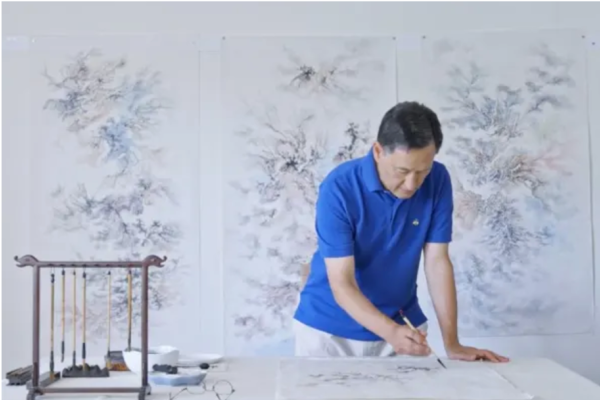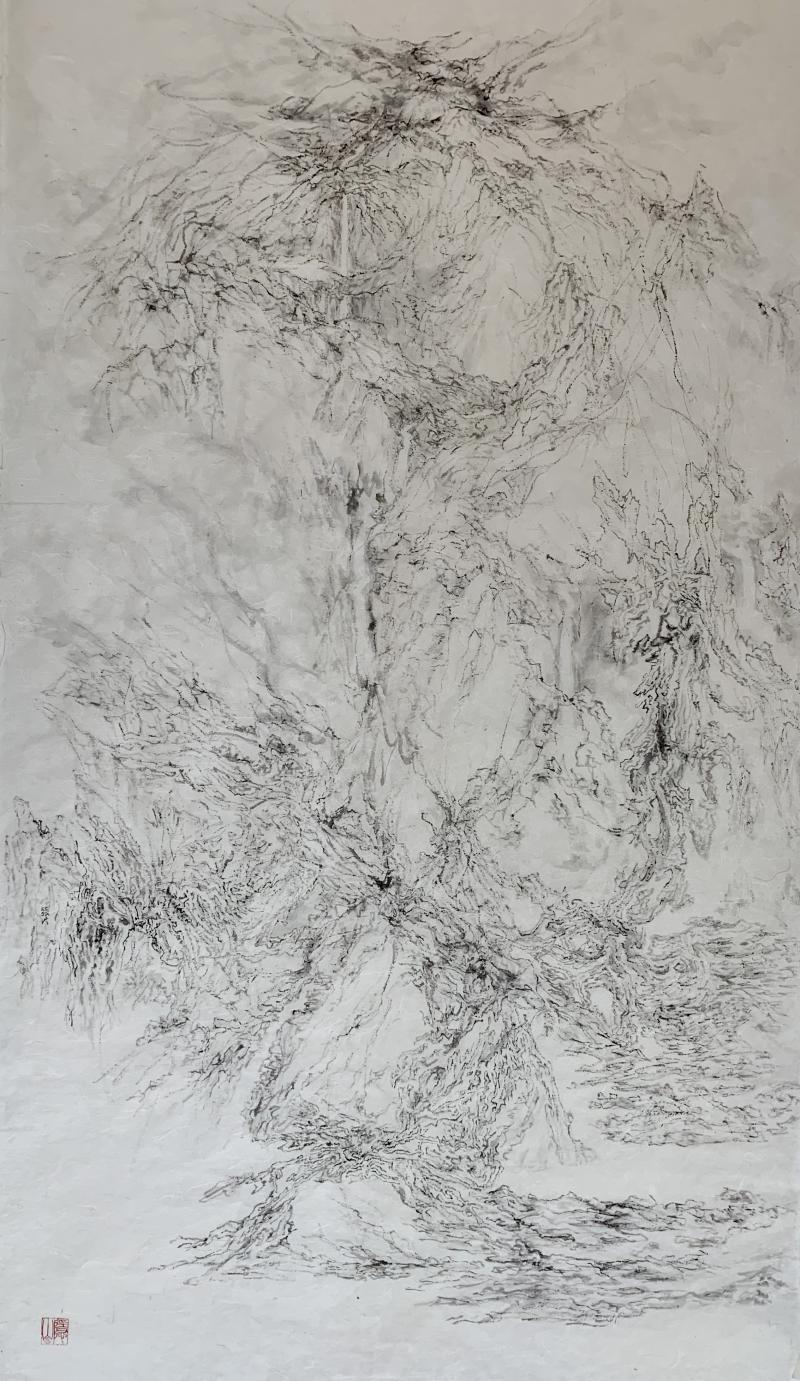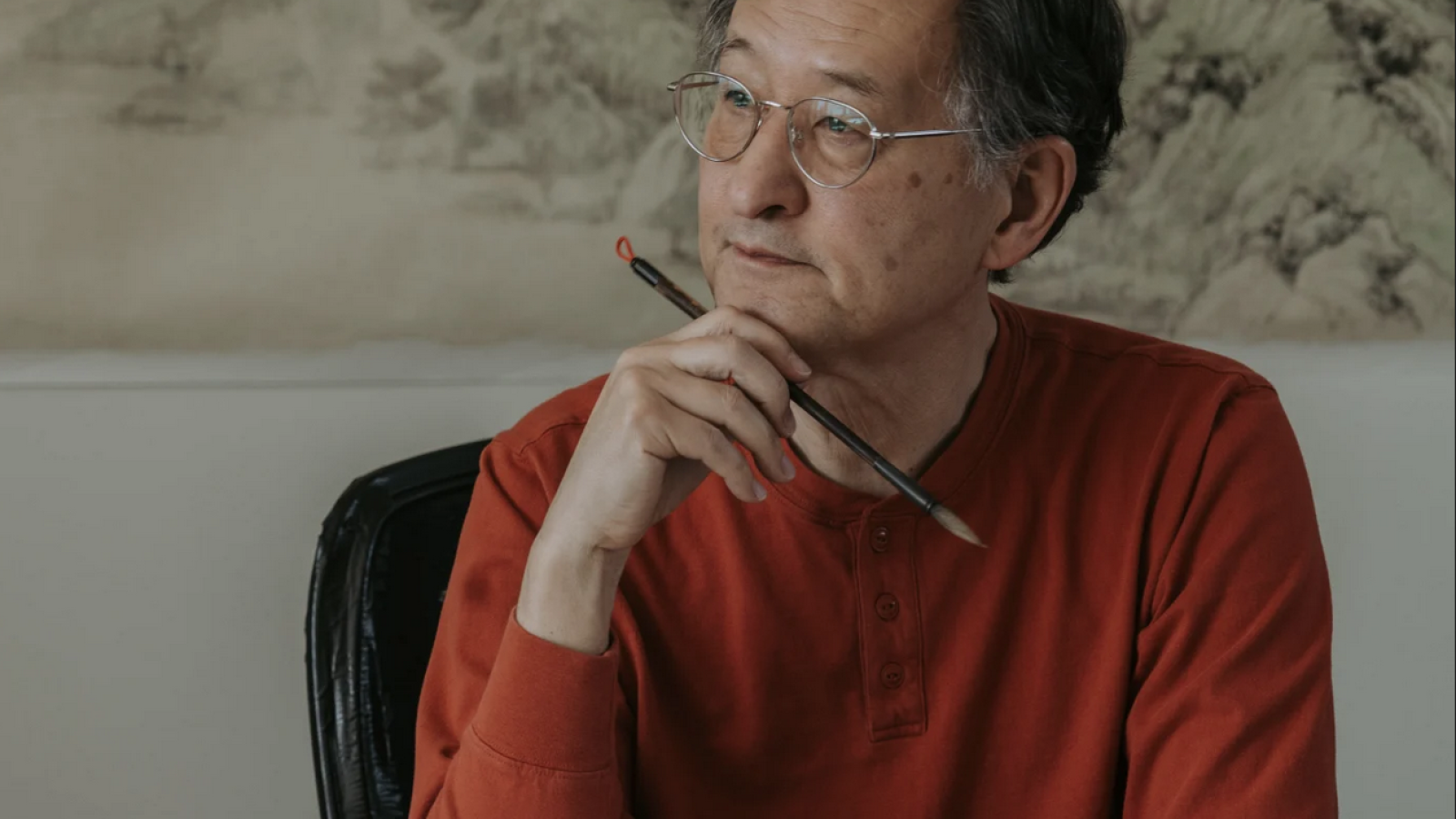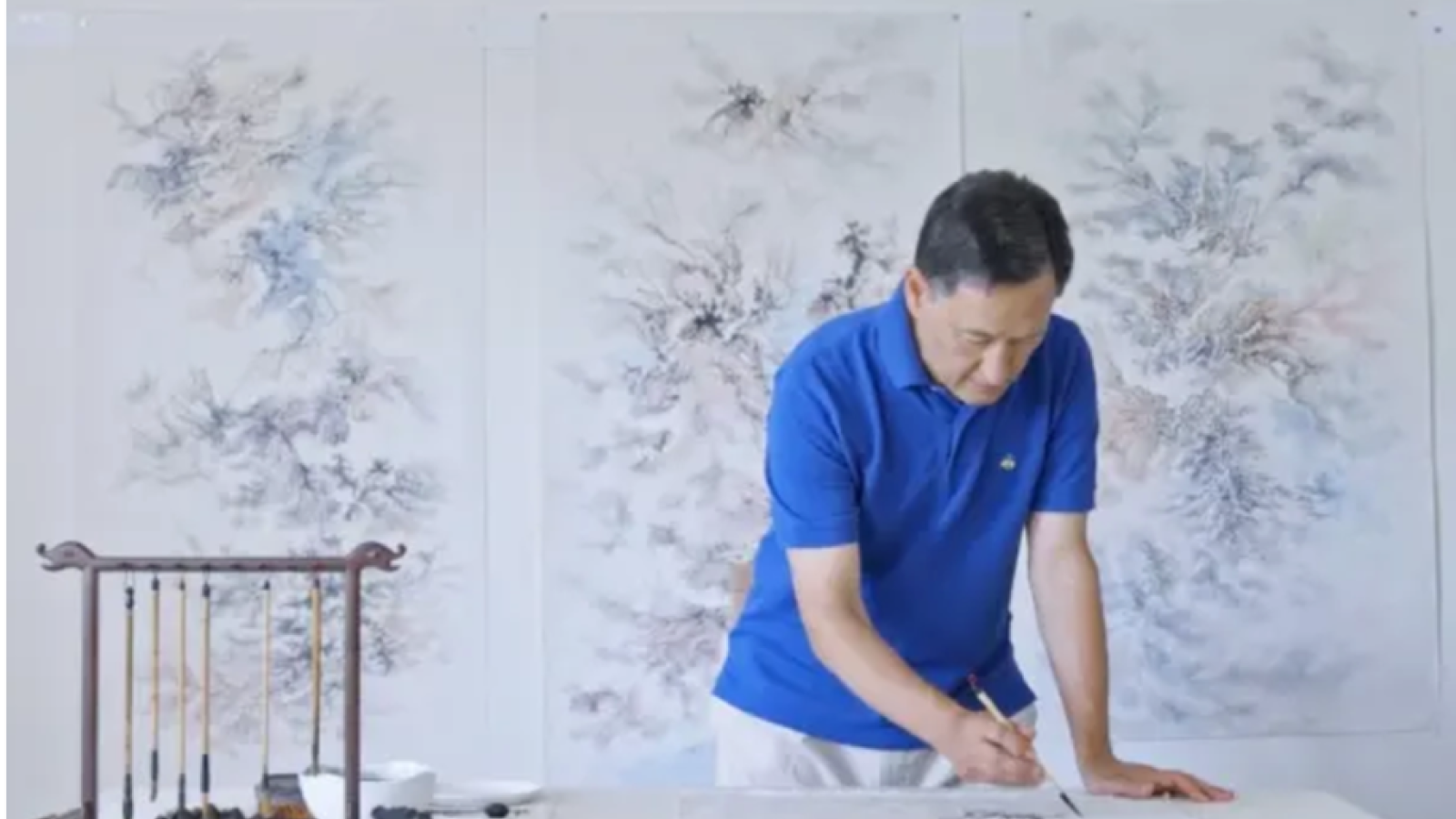
All are welcome to join this special event for our History of Art classes.
“There is a misconception about tradition. People think tradition means past, but actually tradition is ongoing. And the opposite of tradition is not contemporary. One can be both contemporary and traditional. In fact, in order to really understand tradition, it is imperative that you find a way to make it relevant and make it continue into the present and the future."
A Chinese art curator, researcher, scholar, and teacher of Chinese painting and connoisseurship, Arnold Chang (b. 1954, New York City) applies the materials, tools and techniques that were widely used in China since the tenth century, and is dedicated to exploring the beauty of balance in water, ink, brushwork, and linear rhythm. While Chang’s painting technique adheres closely to tradition, his analysis of Chinese landscape painting is informed by the present. In 2010, in response to curator Hao Shen’s invitation to create a painting in dialogue with a work in the Boston Museum of Fine Art’s collection, Chang chose Jackson Pollack’s No. 10 (1949). Chang’s creation was exhibited alongside the Pollack, both lying flat in a case like a Chinese handscroll. Both works read well when viewed from any direction, and provided audiences with a visual pairing of Eastern and Western abstract art.
In his writing, Chang proposes that both the techniques of Chinese literati painting and western abstract expressionism possess a similar principle—fractal expression, Chinese painted landscapes’ tendency to be composed of forms within like forms. Hence, Chang analyzes orthodox Chinese painting from the lens of Western abstract expressionism. He explores the ever-changing viewpoint and angle of vision in Chinese landscape painting and argues that there is no fixed viewpoint, creating, instead, a non-directional image in space. In the realm of abstract expressionism, Chang still practices traditional Chinese literati painting’s principle of handling the brushwork in a balanced and fused manner while breaking away from the limitations of traditional compositional structure.
Chang studied art history with Professor James Cahill and holds a master’s degree from the University of California, Berkeley, and a bachelor’s degree from the University of Colorado. Chang studied painting and connoisseurship with C.C Wang for twenty-five years. He also studied painting with Kuo Yen-ch’iao in Taipei and calligraphy with Wang Chi-yuan in New York. Chang served for many years as Vice President and Director of Chinese Paintings at Sotheby’s, where he is presently a consultant. Chang has previously taught Chinese art at the University of Colorado, San Francisco City College, Connecticut College, and Arizona State University. He has organized several exhibitions, and is the author of a book and numerous exhibition catalogues and articles on Chinese painting. Through years of work, research and connoisseurship experience, he has established an individual artistic style.
Co-sponsored by the Institute for Chinese Studies and the Department of History of Art.



